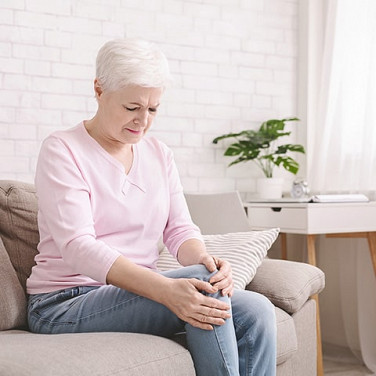Parkinson's disease is a complex neurological condition that primarily affects movement and can also manifest with various non-motor symptoms. Some of the behaviors associated with Parkinson's disease may seem unusual or strange to those unfamiliar with the condition. It's important to remember that these behaviors are a result of underlying neurological changes and are not within the individual's control.
Unusual behaviors in Parkinson's disease: Understanding and support
In Parkinson's disease, certain behaviors may appear unusual or unexpected, but they are common manifestations of the condition. Here are some examples:
Freezing of gait:
Find YOUR ideal care home NOW!
Freezing of gait can cause sudden immobilization while walking, posing balance challenges and increasing the risk of falls.
Micrographia:
Micrographia involves progressively smaller and cramped handwriting, making it difficult to read.
Dyskinesias:
Dyskinesias are involuntary movements that can occur due to Parkinson's medications, presenting as twisting or jerky motions.
REM sleep behavior disorder (RBD):
RBD leads to physical actions during REM sleep, such as shouting or kicking, resulting in unusual nighttime behaviors.
Visual Hallucinations:
Visual hallucinations, where individuals see nonexistent objects or people, are common in Parkinson's disease.
Apathy:
Apathy manifests as a lack of motivation or interest in activities, impacting hobbies and enjoyment.
Masked Face:
Parkinson's can cause a reduction in facial expressions, resulting in a "mask-like" appearance.
Approaching these behaviors with empathy is crucial. Individuals with Parkinson's may find them distressing and require support. Healthcare professionals and caregivers play a vital role in providing assistance and improving quality of life.
By addressing these behaviors with understanding and support, we can enhance the well-being of individuals with Parkinson's disease and their caregivers.
Managing Strange Behaviors in Parkinson’s
| Behavior | Management Strategies |
|---|---|
| Compulsive Behaviors | Adjust dopamine medications, seek therapy, and establish accountability with caregivers. |
| REM Sleep Behavior Disorder | Use bed safety measures, avoid caffeine/alcohol, and consult a sleep specialist. |
| Freezing of Gait | Practice physical therapy, use visual cues, and explore walking aids. |
Contact Senior Home Plus to get more guidance.
If you want to know more about the role of caregivers in the aging population click here.
We are here to help you choose a care home or facility best suited to your needs. Do not hesitate to contact us on the following number: 0230 608 0055 or fill out this form.
Q&A:
1. What are some strange behaviors associated with Parkinson’s disease?
Strange behaviors include compulsive actions like gambling or shopping, acting out dreams during REM sleep (REM Sleep Behavior Disorder), and the "freezing of gait," where patients feel their feet are glued to the floor.
2. Why do Parkinson’s patients experience compulsive behaviors?
Compulsive behaviors are often linked to dopamine medications, which overstimulate brain receptors, leading to excessive gambling, eating, shopping, or even hypersexuality.
3. What is REM Sleep Behavior Disorder in Parkinson’s patients?
This disorder involves patients physically acting out their dreams, such as kicking, punching, or talking during sleep. It is one of the early non-motor symptoms of Parkinson’s.
4. What causes the "freezing of gait" in Parkinson’s patients?
Freezing of gait is caused by the brain’s inability to properly coordinate movement. It often happens in stressful situations or when navigating tight spaces.
5. Can stress make strange behaviors worse in Parkinson’s patients?
Yes, stress can exacerbate behaviors like freezing of gait, as well as non-motor symptoms like anxiety or impulsivity.
6. Are strange behaviors in Parkinson’s related to medications?
Yes, many unusual behaviors, such as compulsive actions, are side effects of dopamine agonists and other medications used to treat motor symptoms.
7. How can strange behaviors in Parkinson’s be managed?
Management strategies include adjusting medications, seeking therapy, and involving caregivers to monitor and support behavioral changes.
8. Is acting out dreams dangerous for Parkinson’s patients?
Yes, acting out dreams can lead to injury for the patient or their sleeping partner. Safety measures like bed rails or sleeping in a separate bed may be necessary.
9. Do all Parkinson’s patients experience these strange behaviors?
No, not all patients experience strange behaviors. The occurrence depends on individual factors such as disease progression, medication, and lifestyle.
10. Can these strange behaviors improve with treatment?
Yes, many behaviors can be managed or improved by tailoring medication, practicing healthy sleep habits, and undergoing therapy for behavioral issues.


